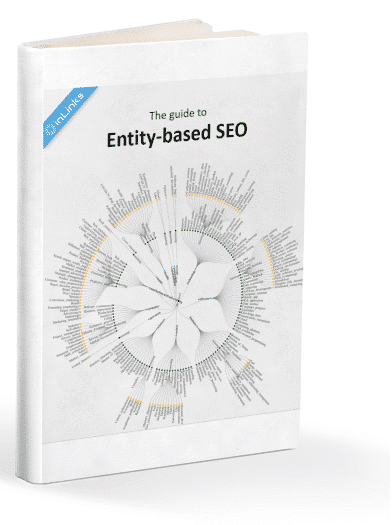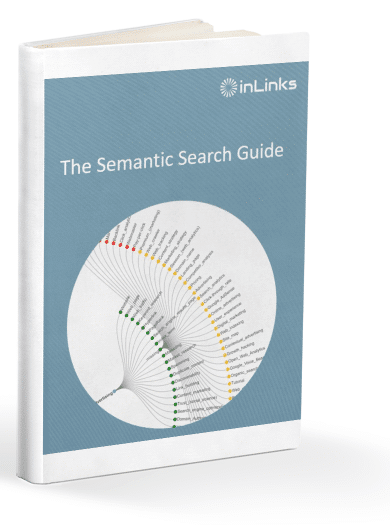The ‘About’ tag from Schema.org
Helping Google understand what your page is talking about is the aim of the game in SEO at the minute. Entities and concepts are taking the role that keywords held for so long, and one prominent way in which this is being achieved is through schema markup- specifically the About tag.
Schema markup is structured data vocabulary which enables search engines to read your website easily, with the ‘About’ tag from schema.org holding an important role within the Resource Descriptive Framework in Attributes. Schema.org describes the About tag as a means of delineating ‘the subject matter of the content’. In other words, it is showing the topic authority of the page and connects keywords to metadata.
Does it affect core algorithms?
Schema markup itself cannot exist without the act of finding the true subject matter of the content. After all, structured data is put in place for that very reason! The About tag can play a role in organizing the microdata as it shows the authority topics. Then you can start to worry about if Google truly understands what that authority matter really means, but luckily the sameAs tag can help with this.
The about tag does not directly affect rich snippets but may help rankings, and knowledge graphs. As far as we know, however, it makes no difference to the local SEO aspects of a page. While it’s not entirely clear if these directly affect your position in the SERPs on their own, using schema markup is a great addition to your SEO strategy. Recent research has suggested that only one-third of Google’s SERPs are using schema markup, making it a bit of a secret weapon.
About schema examples
Scheme.org gives this example of how to implement your own about schema:
<script type="application/ld+json">
{
"@context": "https://schema.org/",
"@type": "Article",
"name": "Apple announces iPhone SE",
"description": "New iPhone announced at 11:30 in California.",
"about": {
"@type": "Event",
"name": "Apple's March 21 Announcements"
},
"contentReferenceTime": "2016-03-21T11:30:00-07:00"
}
</script>
Is there an easier way to implement the about tag in schema markup?
Yes! Inlinks automatically generates schema markup for about, mention, and FAQ tags. It even delineates an exact meaning for Google based on its own knowledge graph using the sameAs tag.
All you have to you need to do is inject one line of code, provided by Inlinks, into your website. The schema markup is then added once you have assigned the right topics to each page (read more about that here) and, voila! You have a whole host of schema markups for search engines to read concerning the content of your page without you really having to think too much about it.
Here is an example.I have made the about tag bold:
<script type="application/ld+json"> {
"@context": "https://schema.org",
"@type": "WebPage",
"@id": "https://dixonjones.com/seo/seo-traps-in-wordpress/#ContentSchema",
"headline": "SEO Traps & WordPress",
"url": "https://dixonjones.com/seo/seo-traps-in-wordpress/",
"about": [
{"@type": "Thing", "name": "Search_engine_optimization", "sameAs": "https://en.wikipedia.org/wiki/Search_engine_optimization"},
{"@type": "Thing", "name": "WordPress", "sameAs": "https://en.wikipedia.org/wiki/WordPress"},
{"@type": "Thing", "name": "trap", "sameAs": "https://en.wikipedia.org/wiki/Trapping"}
],
"mentions": [
{"@type": "Thing", "name": "Search Engine", "sameAs": "https://en.wikipedia.org/wiki/Search_engine"},
{"@type": "Thing", "name": "website", "sameAs": "https://en.wikipedia.org/wiki/Website"},
{"@type": "Thing", "name": "blog", "sameAs": "https://en.wikipedia.org/wiki/Blog"},
{"@type": "Thing", "name": "Digital Marketing", "sameAs": "https://en.wikipedia.org/wiki/Digital_marketing"},
{"@type": "Organization", "name": "Google", "sameAs": "https://en.wikipedia.org/wiki/Google"},
{"@type": "Thing", "name": "print", "sameAs": "https://en.wikipedia.org/wiki/Publishing"},
{"@type": "Thing", "name": "Marketing", "sameAs": "https://en.wikipedia.org/wiki/Marketing"}
]
} </script>Once you have assigned your pages to specific topics Inlinks will intuitively make this schema, meaning you won’t have to worry about implementing this yourself. And the best part is that this can be refreshed and added to as your site grows, to make your life as easy as possible.
Here you can also see how Inlinks uses the sameAs tag in tandem with the about tag to really clarify what this content is about. Essentially, we say the URL is about SEO which is the sameAs the Wikipedia article for SEO. I have written a blog post on this tag which I recommend you read in order to really understand how these tags work together to tell Google what’s going on using authoritative data collections such as Wikipedia.
Try Inlinks for FREE to see how our auto-generated schema markup can help your SEO strategy.




Leave a Reply
Want to join the discussion?Feel free to contribute!